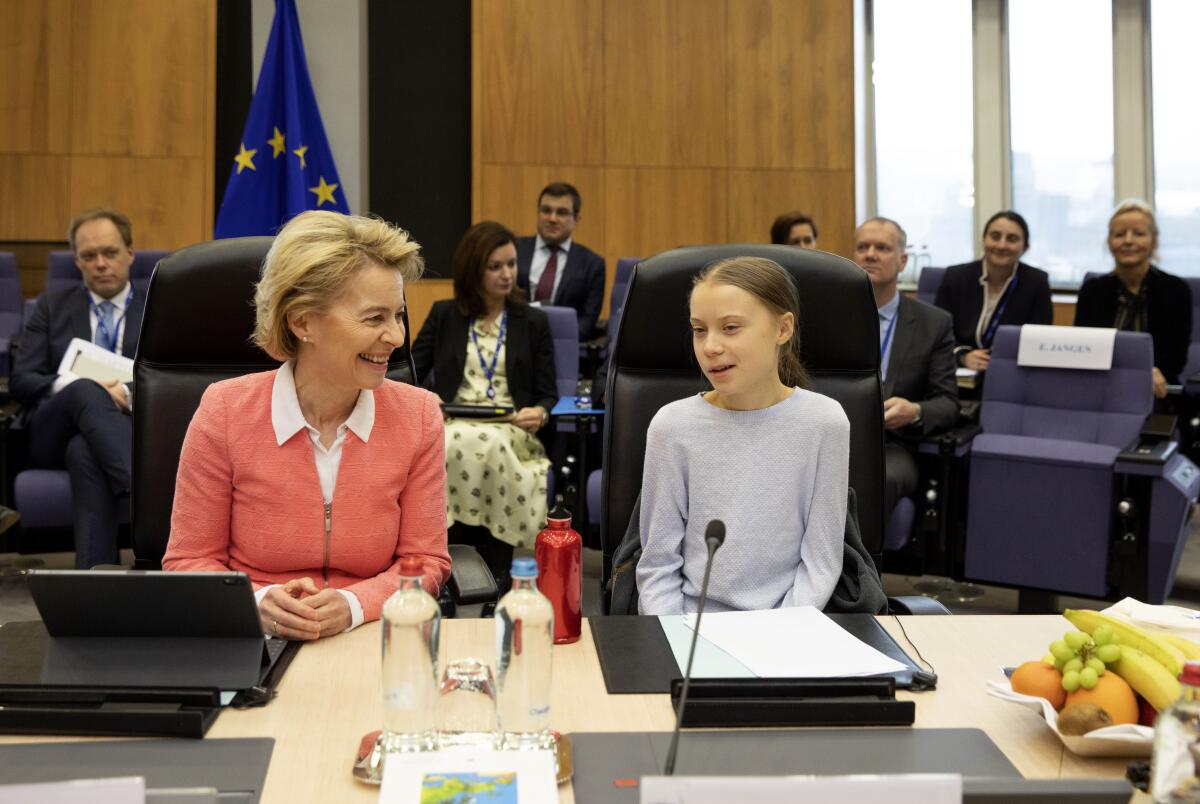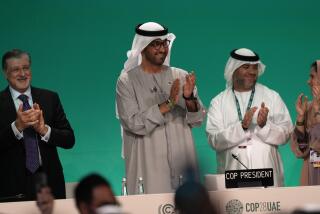EU commission unveils climate law amid criticism

BRUSSELS — Amid fierce criticism from environmental activists, the European Commission is unveiling plans Wednesday for its first ever climate law — the basis of the European Union’s Green Deal aimed at making the 27-country bloc climate neutral by 2050.
With its proposals, the EU’s executive arm wants to make its ambition of cutting greenhouse gas emissions to zero by midcentury irreversible, and legally binding for all member states.
“This climate law will set in stone Europe’s position as a climate leader on the global stage,” said European Commission President Ursula von der Leyen.
According to a leaked draft of the proposals establishing the 2050 goal, the European Commission is proposing a mechanism for regularly raising the EU’s emissions reduction target over the next three decades, but there is no plan for an increase of the bloc’s overall emissions goal for 2030.
This particular point has been harshly criticized by climate activists, who claim that delaying the upgraded 2030 target is detrimental to the bloc’s credibility in the fight against climate change. In the draft, the European Commission only said it would review the EU’s current target of a 40% greenhouse gas reduction by September and “explore options for a new 2030 target of 50% to 55% emission reductions compared with 1990 levels.”
Environmental group Greenpeace said Wednesday that because of the absence of a 2030 goal, EU governments will “find it extremely difficult to agree a new target” before the U.N. climate talks that will be held in Glasgow in November.
Invited by Von der Leyen to attend Wednesday’s climate discussions with the college of EU commissioners, climate activist Greta Thunberg has already dismissed the proposed law.
In an open letter, signed by 34 youth climate activists, the group stressed that instead of setting long-term goals, the EU should focus on the “CO2 budget which applies for today.”
Such CO2 budgets are used to measure the additional emissions that can enter the atmosphere without global warming exceeding a certain level. World leaders agreed five years ago in Paris to keep global warming below 3.6 degrees Fahrenheit, ideally no more than 2.7 F by the end of the century. But scientists say countries will miss both of those goals by a wide margin unless drastic steps are taken to begin cutting greenhouse gas emissions this year.
Greenpeace also insists a 55% reduction target for 2030 wouldn’t be sufficient to limit global heating to 2 degrees Celsius, and WWF recommended to cut greenhouse gas emissions by at least 65% by 2030. WWF also urged EU leaders to ban subsidies and tax breaks for fossil fuels industries and to set up an independent scientific body to supervise the EU’s climate change plans.
Green members of the European Parliament accused Von der Leyen of giving up her claim to lead in the global climate debate.
“In the face of Greta, she is breaking her promise to present ambitious climate targets for 2030,” Green lawmaker Michael Bloss said.
To set a common trajectory and impose revised targets to member states every five years from 2023, the European Commission is also planning to adopt legally binding legislation that can enter into force if the European Parliament and European Council have no objections.
That mechanism could spark concerns among fossil-fuel-dependent EU nations, which need to reorganize their economies in order to reach the 2050 target agreed last year by all EU members except Poland.
To finance the climate transition, the EU plans to dedicate a quarter of its budget to tackling climate change and to work to mobilize $1.1 trillion in investment over the next 10 years. The financial plan includes a mechanism designed to help the regions that would be most disrupted economically by the transition to cleaner industries.
Von der Leyen added that the commission started working on devising a “carbon border adjustment mechanism” aimed at avoiding a situation where EU countries reduce emissions as part of their ambition to make the continent carbon neutral by 2050, but at the same time import CO2 embedded in goods.
French President Emmanuel Macron has been promoting the idea of a carbon tax at the bloc’s borders for countries that did not sign the 2015 Paris agreement and do not regulate CO2 emissions as strictly as the EU does.
More to Read
Sign up for Essential California
The most important California stories and recommendations in your inbox every morning.
You may occasionally receive promotional content from the Los Angeles Times.










